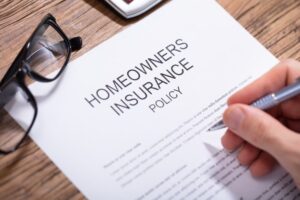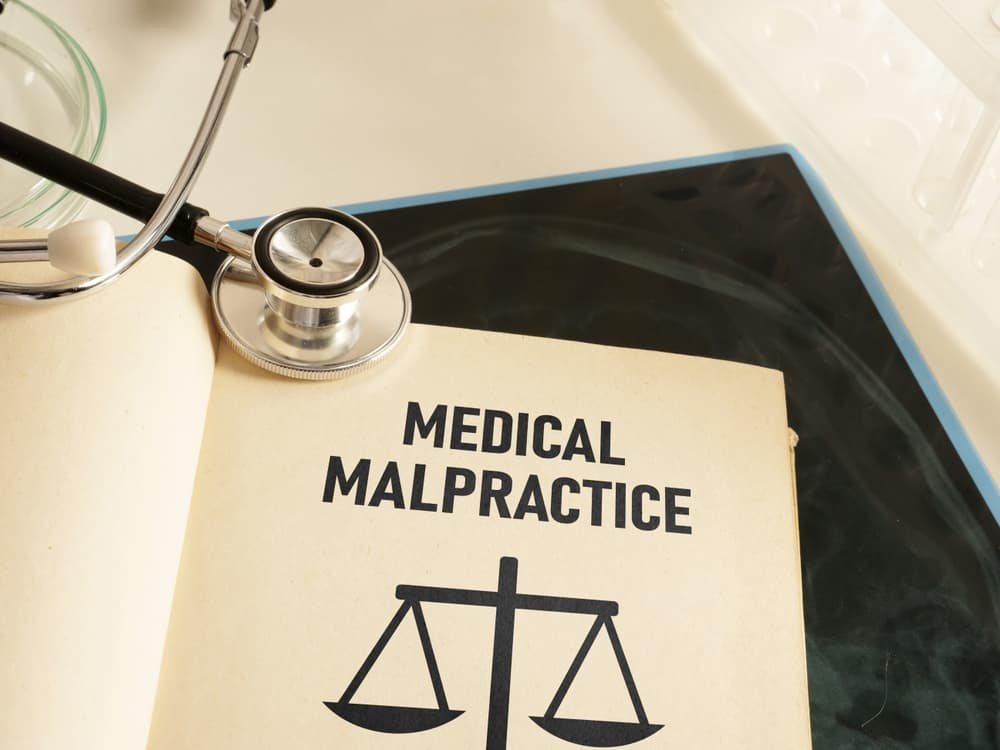A slip and fall accident on someone else’s residential property can quickly change your life. Amid the recovery and pain, you’re likely wondering how the homeowner’s insurance policy might influence your claim. Here’s what you should know, and why consulting a slip and fall accident lawyer can be crucial in such cases.
What Does Homeowner’s Insurance Cover in a Slip and Fall Case?

Homeowner’s insurance is a type of insurance that protects homeowners from property-related financial losses. It typically covers damage to the home itself and to personal property inside the home.
Most homeowner’s insurance policies also provide liability protection for the homeowner. This means if someone suffers harm on the homeowner’s property, as they might in a slip and fall accident, homeowner’s insurance will cover certain expenses that arise as a result.
When someone suffers an injury on a homeowner’s property, the liability portion of their insurance policy comes into play. This coverage takes care of the injured person’s expenses like medical bills, rehabilitation costs, and sometimes even income losses stemming from the injury.
Moreover, if someone suffers harm and decides to sue the homeowner, insurance can cover the homeowner’s legal fees, and any settlement or judgment amounts up to the policy limits.
How Do You File a Claim Against a Homeowner’s Insurance Policy After a Slip and Fall Accident?
If you suffer a slip and fall injury on someone else’s property, the idea of dealing with the homeowner’s insurance claims process might seem overwhelming. Thankfully, when you work with a slip and fall lawyer, they can shoulder this burden for you, allowing you to focus on your recovery.
Your attorney will usually start by notifying the homeowner and their insurance company about your intent to file a claim. Taking this step early on is necessary to ensure all parties have the information they need and to meet applicable filing deadlines.
Your lawyer will also work diligently to gather supporting evidence for your claim. This might include photographs of the scene, testimony from witnesses, and any other relevant information that strengthens your claim. This evidence could highlight negligence or any unsafe conditions that led to the slip and fall accident.
Once all the details are in place, your attorney will formally file a claim with the insurance company. They will also handle all subsequent communications and paperwork, so you don’t have to stress about saying the wrong thing or missing deadlines. Once the homeowner’s insurance company receives your claim and all necessary evidence, your lawyer can begin negotiating a settlement.
Negotiating with insurance companies requires skill, knowledge, and tenacity, and that’s where a seasoned lawyer shines. Insurance companies often employ tactics to shift blame and minimize payouts, but a good attorney can counter these strategies.
Your lawyer can present a compelling case on your behalf and demand the compensation you are due. Additionally, having a lawyer negotiate on your behalf sends a clear message to the insurance company: you’re serious about your claim, and won’t be easy to dissuade.
Can a Homeowner Deny My Slip and Fall Insurance Claim?
The homeowner can’t deny your claim. Only the insurance company can do that. However, a homeowner might try to get the insurance company to deny a slip and fall claim against their policy for various reasons.
They might genuinely believe the conditions of their property did not contribute to the accident, or they could have concerns about rising insurance premiums following your claim. Some homeowners might dispute the severity of your injuries or argue that you bear some responsibility for the slip and fall to avoid liability themselves.
If a homeowner tries to deny your claim, remember that it doesn’t necessarily mean the end of the road. You can fight back, and you don’t have to do it alone. A skilled attorney can thoroughly investigate the circumstances of the fall, gather useful evidence, and present a compelling case to the insurance company or, if necessary, a court of law.
When you work with a knowledgeable slip and fall attorney, they can challenge any attempts to shift blame to you or undervalue or deny your claim. A good lawyer will have the experience and persistence necessary to handle the nuances of your claim and advocate for your best interests.
What Evidence Can You Use to Prove Liability in a Slip and Fall Claim Against a Homeowner’s Insurance Policy?
Homeowners and their insurance providers might deny liability in your slip and fall claim, but your lawyer can identify and present evidence to prove your claim. A robust collection of evidence can mean the difference between a favorable resolution and a disappointing outcome.
Here are some of the types of evidence a slip and fall lawyer could use to prove liability for your claim:
- Photographs of the Scene: Clear photographs can show the exact conditions of the accident site. They can reveal hazards such as wet floors without warning signs, cluttered pathways, or other unsafe conditions. These visuals can pinpoint specific elements that contributed to the fall, emphasizing any liability on behalf of the homeowner.
- Surveillance Videos: Security cameras in or around the property might capture incidents as they unfold. Surveillance footage provides an unbiased, real-time record of the slip and fall, showing the circumstances leading up to the accident and the immediate aftermath.
- Witness Testimony: Individuals who witnessed the accident can provide detailed accounts of what they observed. Their narratives can reinforce your version of events, filling in gaps and adding a layer of external validation. Witness testimony is particularly influential when it comes from impartial observers who have no stake in the claim’s outcome.
- Incident Reports: If the homeowner or another party documented the accident, their report could shed light on initial reactions, observations, and the nature of any hazardous conditions. These reports often include details that can either support or challenge the homeowner’s later statements.
- Medical Records: Comprehensive medical records can detail your injuries, the treatments you received, and your prognosis for recovery. They offer an objective measure of the harm you suffered due to the fall, linking the accident directly to health consequences. They can also indicate the severity and potential long-term consequences of your injuries.
- Weather Reports: Weather conditions are often a key contributing factor in outdoor slip and fall accident cases. Official weather reports can confirm if conditions like icy paths, pooling rainwater, or other environmental factors were present. This could establish whether such elements contributed to the slip and fall and if the homeowner should have taken preventative measures.
- Property Maintenance Records: Delving into maintenance logs or service reports can reveal a homeowner’s awareness of potential hazards. They might indicate whether there was a known issue, how long it persisted, and whether the homeowner took any measures to rectify it.
- Physical Evidence: Examining physical evidence, like the footwear and attire you had on when you fell, could rule out a degree of personal negligence. For instance, if the shoes you wore had proper traction and were in good condition, it could strengthen your argument that external hazards were the primary cause of your fall.
- Expert Testimony: Specialists in areas like property safety or construction could offer insights into whether the property met standard safety protocols. Their expert opinions can clarify complex issues, such as whether the homeowner’s maintenance (or lack thereof) fell below expected standards.
- Records of Previous Complaints or Incidents: If there is a history of similar accidents or concerns involving the same property or hazard, it strongly suggests negligence on the homeowner’s part. Documentation of multiple incidents or complaints can paint a picture of recurring issues that the homeowner either ignored or refused to adequately address.
How Will Homeowner’s Insurance Policy Limits Affect My Slip and Fall Claim?
Insurance policy limits play a key role in determining the maximum compensation you can get from a homeowner’s liability insurance following a slip and fall. Every insurance policy has policy limits or caps, which are the highest amounts the insurance company will pay for a single claim. If your medical bills, lost income, or other losses exceed policy limits, the homeowner’s insurance will not cover the excess amount.
In other words, even if you establish the homeowner’s liability convincingly, their policy limits could restrict your potential payout. In such situations, it’s necessary to have a lawyer who can explore alternative avenues for compensation or negotiate effectively to maximize your recovery within the policy limits.
What Other Factors Could Affect My Slip and Fall Claim?
Several factors, apart from policy limits, could influence the outcome of your slip and fall claim against a homeowner’s liability insurance:
- The Condition of the Property: One key factor is the state of the property at the time of the accident. If the homeowner can demonstrate they took reasonable precautions to prevent accidents, it could affect the determination of liability for the slip and fall.
- The Timeliness of Your Claim: Delays in reporting the incident or seeking medical attention could weaken your claim. If you wait too long to get care or file a report, insurers might argue that your injury wasn’t severe or question the link between the accident and your injury.
- The Quality of the Evidence: The strength and relevance of the evidence you present could also play an important role. Incomplete or inconclusive evidence might hinder your ability to establish the homeowner’s liability.
- Legal Representation: Having a knowledgeable lawyer can make a significant difference in your claim’s success. Their experience in handling claims processes, negotiating with insurance companies, and presenting compelling arguments can considerably improve your chances of recovering a fair settlement payout.
How Much Compensation Can I Recover in a Slip and Fall Claim?
The compensation available in a slip and fall claim against a homeowner’s liability insurance varies widely based on numerous factors. The nature and severity of your injuries often determine how much you can recover for medical expenses, which usually make up the largest portion of any compensation claim. This includes things like hospital stays, surgeries, medications, and rehabilitation costs.
Beyond that, you could also claim compensation for lost income if your slip and fall injury prevents you from working. To gain a better understanding of the potential compensation in your specific situation, consult a personal injury attorney. They can provide useful insights given the particular circumstances of your case and the limits of the homeowner’s insurance policy.
What Happens if the Homeowner or Homeowner’s Insurance Provider Refuses to Agree to a Fair Settlement?
Sometimes, a homeowner or their insurance provider might refuse to agree to a fair settlement. Such a refusal might arise due to liability disputes, disagreements over the claim’s value, or other contentious issues.
However, this does not necessarily mark the end of your options. Depending on the circumstances, the next logical step might be to escalate the matter to the courts by filing a lawsuit.
Filing a lawsuit serves multiple purposes. Firstly, it formally stakes your claim to compensation, highlighting your commitment to pursuing what you believe you deserve. Secondly, it can signal to the homeowner and their insurer that you are serious about your claim, potentially nudging them back to the negotiating table for more favorable terms.
But initiating a slip and fall lawsuit requires experience and a thorough understanding of personal injury law. This is where the professional help of a lawyer comes in. A seasoned lawyer can handle all aspects of the legal process, present a compelling case on your behalf, and fiercely advocate for the monetary award you are due.
From the moment you go to a slip and fall lawyer for help, they can explore all possible avenues for compensation and uphold your legal rights. While litigation might sound daunting, having a skilled lawyer equips you with the necessary tools to push for a fair settlement, even in the face of initial resistance.
How Can a Slip and Fall Accident Lawyer Help Me?

Here are just a few more ways a personal injury lawyer can help if you have a claim against a homeowner’s insurance policy:
- Investigating the slip and fall to identify useful evidence
- Determining whether the homeowner or another party is liable
- Interpreting complex insurance policy language
- Arranging expert testimony to strengthen your claim
- Handling all claim paperwork and official filings
- Drafting and submitting a thorough demand letter to the insurer
- Negotiating aggressively with the insurance company
- Identifying and countering lowball settlement offers
- Shielding you from aggressive tactics by insurance adjusters
- Preparing your case for trial, if necessary
- Representing you in court







